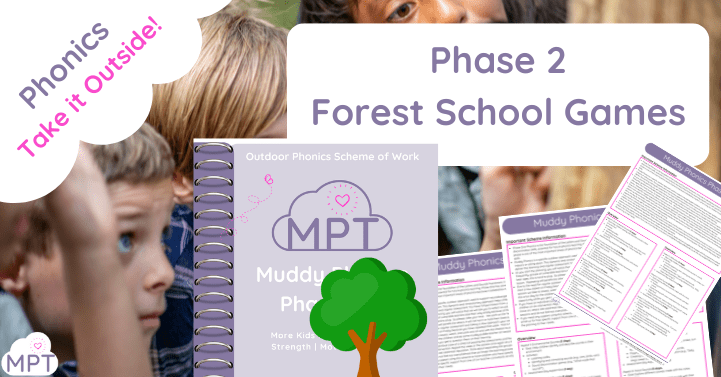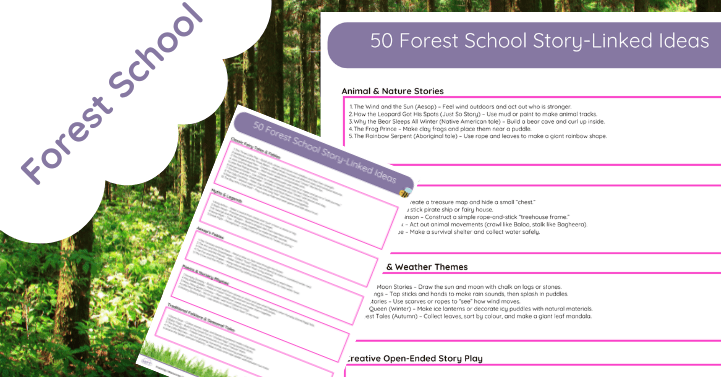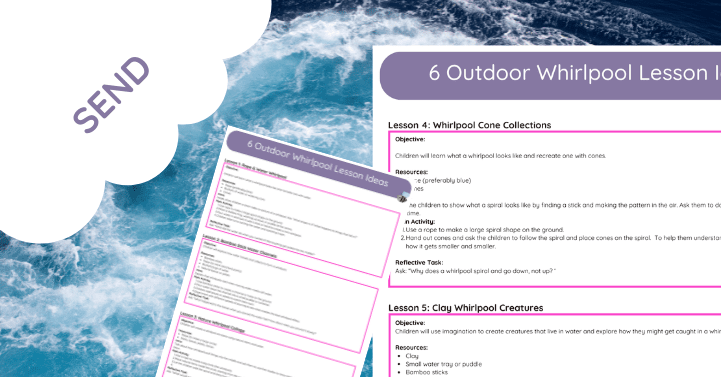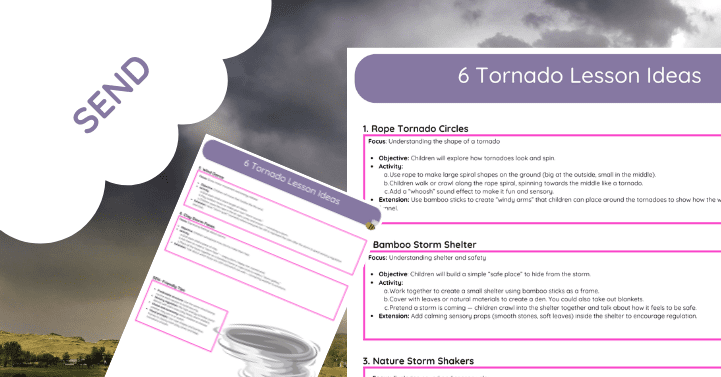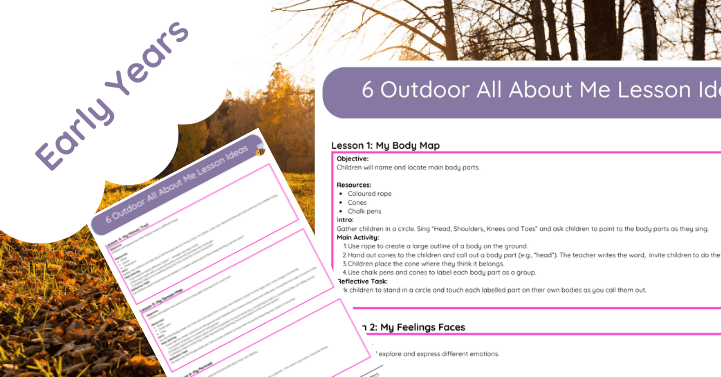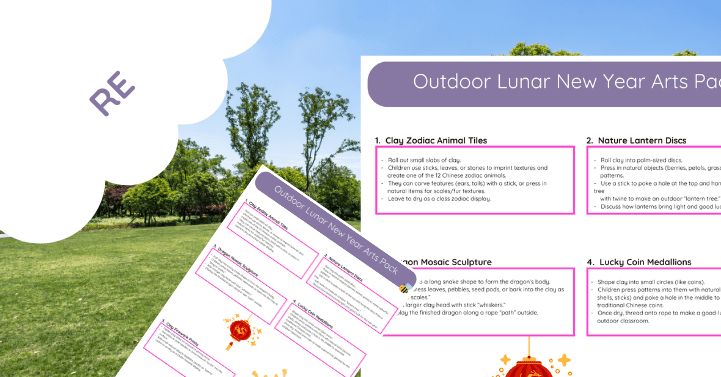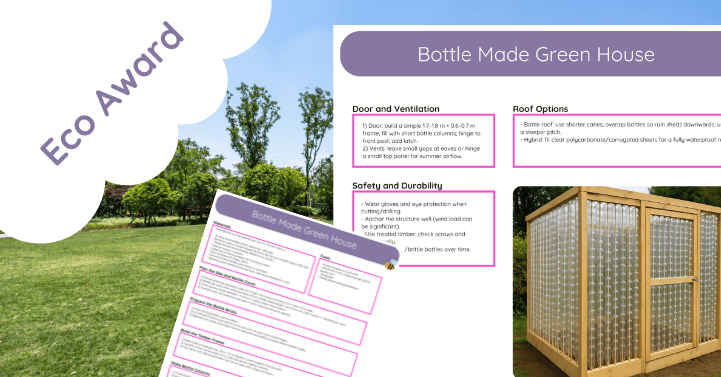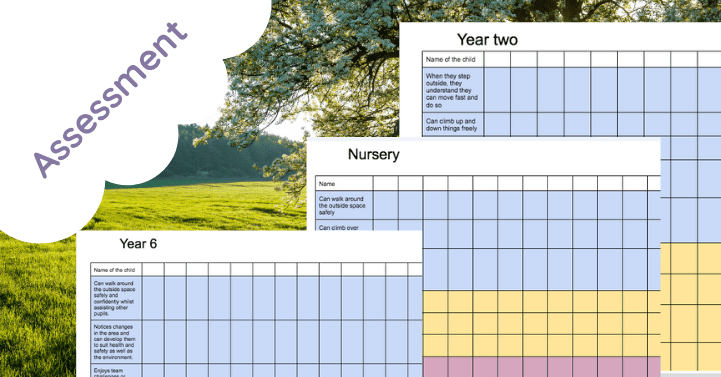Make Phase 2 phonics fun, engaging, and active with our Forest School Games for Early Literacy. Designed to support early reading skills, these interactive, nature-based activities help children learn letter sounds, blend words, segment sounds, and recognize tricky words while exploring the great outdoors.
Key Features:
- Nature-Based Phonics Play: Encourages letter recognition, blending, and segmenting through hands-on, outdoor activities.
- Multi-Sensory Learning: Uses movement, touch, sight, and sound to enhance phonics retention and early literacy development.
- Encourages Exploration & Engagement: Fosters curiosity, teamwork, and problem-solving in a natural environment.
- Aligned with EYFS & Letters and Sounds Framework: Supports Phase 2 phonics learning objectives in a practical, engaging way.
- Active & Physical Learning: Encourages children to develop gross motor skills while reinforcing phonics skills.
What’s Included?
- Six structured outdoor phonics games, including:
- Sound Hunt in the Wild – Finding and recognizing letter sounds hidden in nature
- Mud Writing – Practicing letter formation and segmenting words using natural materials
- Leaf Jump Blending – Jumping from leaf to leaf while blending CVC words
- Forest Phonics Relay – Racing to collect and build simple words
- Stick Sound Sorting – Matching nature objects with their beginning sounds
- Log Jump Tricky Words – Learning high-frequency words through active movement
- Step-by-step instructions for each game
- Adaptable activities for different ability levels and group sizes
- Tips for creating an engaging outdoor phonics experience
Benefits for Children:
- Develops early phonemic awareness and blending skills.
- Encourages physical activity and outdoor learning.
- Strengthens letter recognition, segmenting, and tricky word recall.
- Promotes confidence, teamwork, and creativity in an immersive learning environment.
- Provides a memorable and active alternative to classroom-based phonics lessons.
Perfect for teachers, early years practitioners, home educators, and Forest Schools, these Phase 2 Phonics Forest School games bring literacy learning to life in an exciting and engaging way.
Forest Schools have emerged as a transformative approach to education, emphasizing outdoor, nature-based learning that fosters holistic child development. By immersing children in natural environments, these programs offer a myriad of benefits that traditional classroom settings may not provide.
1. Boosting Confidence and Self-Esteem
Engaging in Forest School activities allows children to explore, problem-solve, and take appropriate risks in a supportive environment, leading to increased confidence and self-esteem.
2. Enhancing Physical Motor Skills
Activities such as climbing, balancing, and running in natural terrains help develop both gross and fine motor skills, improving coordination and physical health.
3. Fostering Social Skills
Participating in group tasks like building shelters or sharing tools promotes teamwork, communication, and an understanding of the consequences of one’s actions on peers.
4. Encouraging Language and Communication Development
The sensory experiences in a forest setting stimulate language development, as children describe their activities and observations, enriching their vocabulary and expressive skills.
5. Connecting with the Natural World
Regular interaction with nature instills a sense of environmental stewardship and a deeper understanding of ecological systems, fostering a lifelong appreciation for the environment.
6. Supporting Emotional Well-Being
Nature immersion allows children to express themselves freely, reducing stress and promoting emotional resilience. They can be active or find peace and quiet, catering to their emotional needs.
7. Complementing Academic Learning
Forest School activities can be integrated with the national curriculum, aiding in understanding concepts through practical application, which enhances retention and motivation to learn.
8. Developing Risk Assessment Abilities
Children learn to assess and manage risks in a controlled environment, leading to better decision-making and problem-solving skills.
9. Stimulating Sensory Development
The diverse stimuli in a forest environment engage all senses, contributing to sensory development and helping children process information more effectively.
10. Encouraging Independence
Forest Schools provide children with the freedom to explore and learn at their own pace, fostering independence and self-directed learning.
Incorporating Forest School principles into early education offers a comprehensive approach to child development, blending academic learning with essential life skills in a natural setting.


